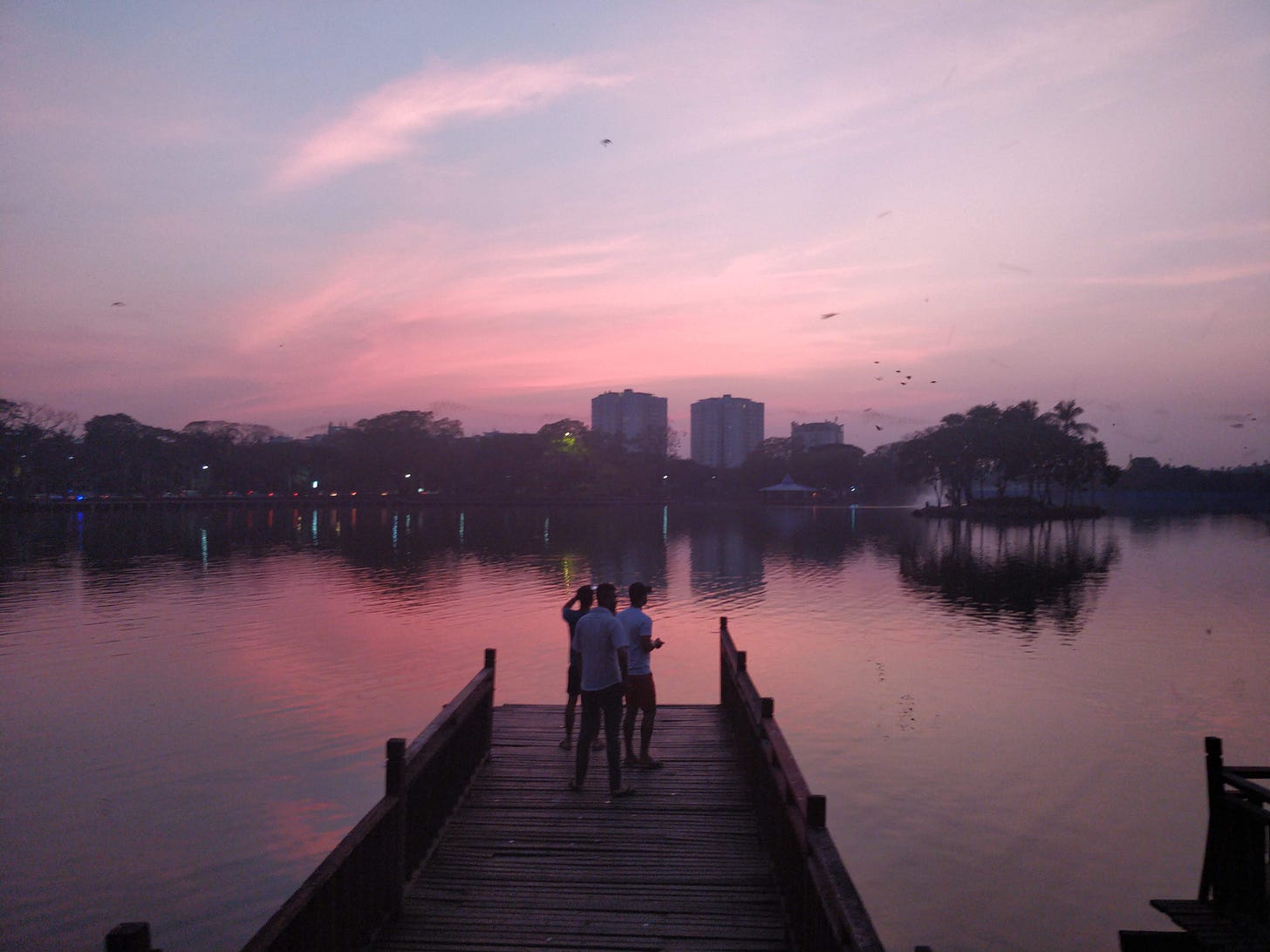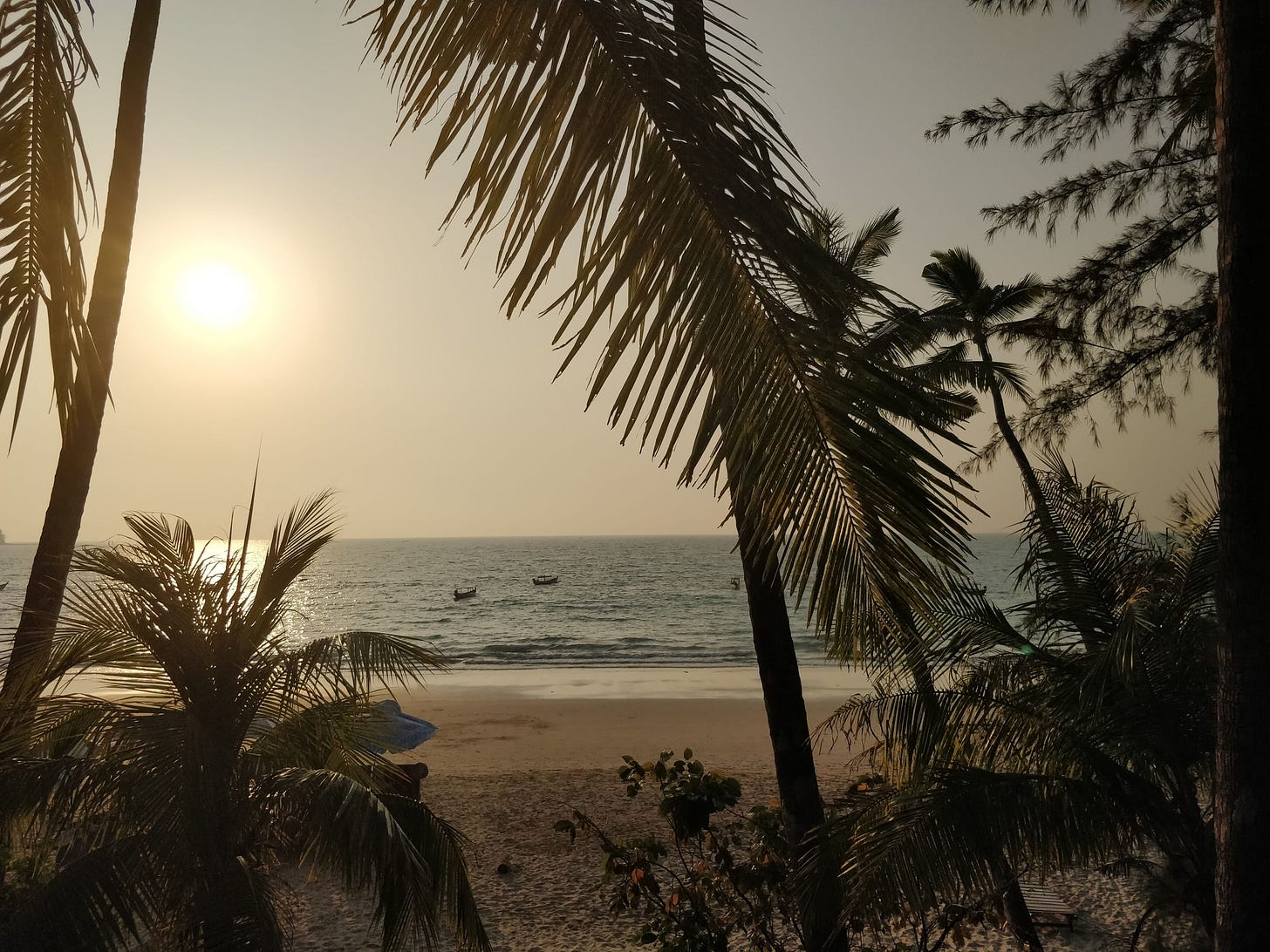It's Complicated
A newsletter about food systems, climate change and everything connected to them
This has been a hectic week so this issue is gonna be short as well as late. But hopefully it’ll still give you some food for thought. Pun fully intended.
Hot Off The Press - Complex Crises
We often hear of climate change being referred to as a ‘threat multiplier’ because of its ability to aggravate existing problems and tensions. For example, higher temperatures are likely to inflame friction among communities already struggling with scarce water resources.
How about if we add two other evolving and volatile issues, like migration and instability, into the mix? Because these issues are already overlapping in a manner that should worry all of us (not just policymakers) and they are likely to manifest in ways we have so far not yet thought of.
Well, I’ve been fortunate to be part of a team that is looking at two case studies where these intersecting challenges are playing out in complex ways and the first papers are available today!
The paper I was involved in is the aptly-titled “And Then Things Got Complicated: Addressing the Security-Climate-Migration Nexus in South Asia” which covers India, Bangladesh and Myanmar.
These are all countries highly vulnerable to climate change, sharing porous borders and with a history of migratory tension.
While Myanmar is usually seen as part of Southeast Asia and is a member of the regional bloc ASEAN, it actually straddles both Southeast and South Asia. The country is strategically located - wedged between two of the world’s major powers (India and China) and has a long and some times difficult history with its western neighbours India and Bangladesh.
Most importantly, Myanmar’s current political instability, which has already spilled over across borders and which continues to play out in front of our eyes, made its inclusion in the paper imperative. In fact, we argued in the paper that the country’s latest woes, coming on top of decades-long conflicts, climate pressures, and regular migration, made it the new Nexus test case.
The second case study looks at the Sahel region in West Africa where demographic pressures, state fragility and climate shocks have driven migration both within the region and across the Mediterranean over the past decade. You can read that paper here.
Here’s an excerpt from the papers:
“In the coming decades, climate change will increasingly threaten humanity’s shared interests and collective security in many parts of the world, disproportionately affecting the globe’s least developed countries. It will pose challenging social, political, and strategic questions for the many different multinational, regional, national, and nonprofit organizations dedicated to improving the human condition worldwide.”
“The interplay between climate, water, food, migration, urbanization, and economic, social, and political stress transcends national borders.”
Expo 2020
In case you didn’t know, Expo 2020 is currently ongoing in Dubai. Yes, last time I checked, we’re now in 2022. But as with so much of 2020, it was postponed. It has now been going on for over four months and has 41 more days to go.
Well, Feb 17 - 23 is “Food, Agriculture & Livelihoods” week and I’m heading there tomorrow to see what it’s all about.
I’ll also be taking part in the Good Food For All flagship event on Sunday (Feb 20). You can register and follow it online here.
All of this also means my next issue is likely to focus on what I discover in Dubai.
Interesting Reads
These are all interesting papers and stories that came out over the past few months but which I didn’t have the space to write about here until now.
1. Trust and responsibility in food systems transformation. Engaging with Big Food: marriage or mirage?
This analysis (no paywalls, yay!) came out in BMJ Global Health in the Nov 2021 issue and touches on the debates between multilateralism and multistakeholderism in the context of food systems.
It focuses specifically on the idea that powerful, for-profit companies - “Big Food” or “Big Ag”, whatever you’d like to call it - who are at least partially responsible for the problems of our food systems, should be part of the ongoing discussions to transform broken food systems, and that researchers, practitioners and policymakers should engage with them.
The rationale is that “transformative change requires multistakeholder approaches with all actors around the table”.
But as the authors said,
“The challenge though is that meaningful engagement requires trust. And trust relies on tenets such as responsibility and transparency.”
They look at two short case studies - last year’s Food Systems Summit and the plastic pollution from food packaging - and came to the conclusion that unless these companies demonstrate a change in behavior, it’s unrealistic to build this trust.
“Inviting Big Food to join research and policy agenda-setting efforts legitimises irresponsible corporate behaviour and introduces significant conflicts of interest.”
“Amid food systems so influenced by powerful interests, personal choice (vis a vis personal responsibility) is something of a misnomer. When consumer choice is genuinely possible, it is among a relatively privileged minority who are able to eat healthily, or to purchase fair or sustainably produced items.”
2. The empty promise of instant delivery by Terry Nguyen in Vox, Jan 2022
There have been - and will be - lots of pieces about gig workers and delivery services but this one was well-written, chock-full of links and numbers and sobering without relying on the terrible working conditions of the workers.
It’s quite US-centric but still applicable - and relatable - to many of us who have shifted our buying behaviour, both for food and other things, between the BC (before-COVID) and DC (during-COVID) worlds. This include myself. I hadn’t ordered a food delivery in 30 months in Rome until the pandemic came along. The PC (post-COVID) era still feels far away.
“Venture capital firms are bullish on the emerging and crowded market of ultrafast delivery startups, which have yet to be profitable without investor help. In substituting human-to-human interactions with human-to-machine transactions, shoppers are opting out of the mundane nuisances involved with running errands or grabbing coffee. This might seem like an individual consumer choice, but it is informed by a post-pandemic retail and service landscape that can be hostile to ordinary shoppers.”
3. People Like Malls by Amanda Mull in The Atlantic, Aug 2021
This one is sort-of linked to the previous piece in that it talked about Amazon’s rumoured plan to test the concept of… ummm… physical retail shops.
“The kinds of things you might have bought in a department store at the mall before the online shopping apparatus that Amazon helped create drove a nail into that business’s coffin.”
For those who thinks the move is counterintuitive, Mull argues that it actually is not, because online retailers are struggling with a litany of challenges, including getting products to your door from a centralised facility and dealing with returns from people who regret impulse purchases.
“What solves all of these problems—the high return rates, the cost-prohibitive last-mile freight, the logistics nightmares, the buyer frustration, and the monumental volume of consumer waste it all sends to landfills—on some level? Stores. Going to a store.”
“Amazon and the companies like it invent the solutions to the problems they created, and you pay for them to be implemented.”
As always, have a great weekend! Please feel free to share this post and send tips and thoughts on twitter @thinink, to my LinkedIn page or via e-mail thin@thin-ink.net.






